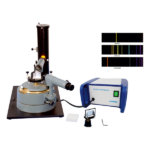Physics is often seen as a subject dominated by complex equations and abstract theories. While understanding fundamental concepts is crucial, the heart of physics lies in experimentation—where theory meets reality. For physics majors, cultivating strong experimental skills is not just an academic requirement; it’s essential for success in research, industry, and innovation.
You can also check college physics lab equipment from Indosaw as well.
Why Experimental Skills Matter
Theoretical knowledge provides the language and framework to describe natural phenomena, but it’s through experiments that we verify, challenge, and expand these theories. Experimental skills allow students to design investigations, collect and analyze data, and interpret results critically. These skills build scientific intuition, problem-solving abilities, and a deeper appreciation for the nuances of physical laws.
Moreover, in many career paths—be it academic research, engineering, data science, or technology development—hands-on experience is invaluable. Employers and graduate programs often prioritize candidates who can seamlessly transition from conceptual understanding to practical application.
The Gap Between Theory and Practice
Despite its importance, many physics curricula emphasize lectures and problem sets over laboratory work. Traditional labs sometimes focus on “cookbook” experiments with predetermined outcomes, limiting opportunities for creativity and critical thinking. Students may complete experiments without fully grasping their significance or developing transferable skills.
This gap can leave graduates underprepared for real-world challenges, where experiments are rarely straightforward and outcomes uncertain. Bridging this divide requires a shift in how experimental physics is taught.
Building Experimental Skills: Effective Approaches
1. Inquiry-Based Learning
Encouraging students to ask questions, design their own experiments, and troubleshoot fosters ownership and engagement. This approach mimics authentic research and helps students develop independence.
2. Project-Based Labs
Longer-term projects that integrate multiple concepts promote deeper understanding and allow students to experience the iterative nature of experimental science. Collaborative projects also build communication and teamwork skills.
3. Integrating Modern Technology
Using digital data acquisition tools, simulation software, and even remote or virtual labs can enhance learning. These technologies provide more precise data and open opportunities for experiments otherwise inaccessible due to cost or safety.
4. Emphasizing Data Analysis and Interpretation
Teaching students to critically analyze data, recognize errors, and draw valid conclusions is as important as conducting experiments. Statistical tools and software should be part of the lab experience.
Case in Point: Successful Programs
Several universities have revamped their physics labs with impressive results. For example, programs incorporating open-ended projects and real research questions report increased student motivation and better preparation for graduate studies. In some institutions, partnerships with research labs give students exposure to cutting-edge experiments early on.
Recommendations for Educators
-
Design lab courses that balance guidance with freedom, enabling creativity and critical thinking.
-
Assess students on experimental design, data analysis, and scientific communication, not just on getting “right” results.
-
Foster a classroom culture where failure and unexpected outcomes are seen as learning opportunities.
-
Continuously update lab content to reflect current research and technological advances.
Conclusion
Building experimental skills in physics majors transforms theoretical knowledge into tangible understanding. It equips students with the confidence and competence to navigate the complexities of the physical world and prepares them for diverse career paths. As physics educators and institutions evolve their teaching practices, emphasizing experimentation will remain key to nurturing the next generation of physicists, innovators, and problem-solvers.

